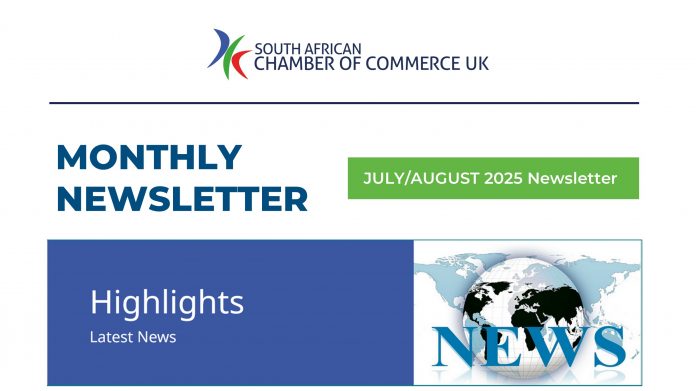The fourth article in a series of four by Roelf Odendaal
Advising families on their wealth structures in not an easy or simplistic task. It requires a variety of skills, disciplines and decades of experience. Yet, the successful transfer of wealth is partially dependent on the guidance and nurturing of a professional advisor. When we consider the role of the advisor to ensuring sustainable wealth transfer, what the advisor brings to the table is crucial. It is not only a matter of technical abilities, but of personal and professional skills, experience and patience.
What is the role of the family wealth advisor?
There is a misconception that a wealth advisor only manages the investments (the Financial Capital) of a family. The term “wealth” is a much broader concept than just financial capital. It includes the non-financial capital of the family as first identified by Jay Hughs [1]. Dennis Jaffe illustrates non-financial capital [2]:
- Spiritual Capital – Jaffe writes: “By affirming a purpose they deeply care about, a family can summon the energy needed and use their resources to make their goals a reality. And by working together on a shared task, they can accomplish far more than they could as individuals. This is the power of spiritual capital.”
- Relationship Capital – Jaffe writes: “By investing in building relationships, they increase their capability to do great things together.”
- Human Capital – Jaffe writes: “Young family members need to see what the family culture can offer them and learn what it takes to sustain it. However, the more capable they are, the more options they have beyond the family, or they have their own agendas and want to innovate and change what the family does.”
- Social Capital – Jaffe writes: “Another motivation for developing social capital has to do with the family’s desire to support the wellbeing of generations to come. They want to contribute to the kind of world they hope their grandchildren will inhabit. The family builds social capital through community service and philanthropy as well as by adhering to ESG (environment, sustainability and governance) values and policies in all their financial and business activities.”
Pro-actively building the non-financial capitals helps to position the family so that they are prepared and equipped to ensure their financial capital can sustain the future generations, thereby making their wealth sustainable. Jaffe explains the balance between the financial capital and non-financial capital: “As they consider the purpose of their financial wealth, family members begin to view it with different eyes. Its absolute value becomes abstract, replaced by a sense of agency and possibility for what it can do. When they think of their family wealth, it is not a financial figure but a portfolio of efforts, activities and achievements.”
The role of the family’s wealth advisor is to guide the family in building their financial and non-financial capital. Being able to attend to all forms of capital as a solo advisor is not feasible, and we see the advisor taking responsibility for a specific type of capital and co-ordinating with other professional advisors to address the capitals they are well versed in. The family wealth advisor becomes the primary advisor (sometimes called the trusted advisor).
The role of the primary advisor lies beyond the project management of the professional advisors. The primary advisor understands the family, their collective needs as well as their individual needs. The primary advisor understands the purpose behind the financial capital and can identify the efforts and advice needed to help the family success in their purpose.
The basis of the relationship the primary wealth advisor has with the family is based on trust. Ruth Steverlynck [3] describes how she builds trust with the families she advises:
- “I do what I say I will do – always.
- I strive for equanimity: I show up ready to get to work, no matter what is going on in my personal life.
- I am the same person in front of the client as I am away from the client.
- I listen and I care.”
How does the advisor contribute to sustainable family wealth?
Understanding the purpose (or intent)
The purpose behind the family’s financial wealth is most probably the single most important aspect the advisor must understand. If we don’t understand the purpose, how can we guide the family to ensure sustainability? Crucial to ensuring sustainability is to appreciate the position of the wealth creators (their wishes, guidance and thoughts) as well as the ambitions and motivation of the future generation. It is this delicate balance that will help the future generations engage with the family’s financial and non-financial capital and do what they can to contribute to a fulfilled purpose. The advice we offer should not be valid to only one generation.
Understand who the client is
As advisors we are sometimes overly focused on our own income. We assume that the person who will pay our fees is our client. The result is that our focus is on the bill payer and to ensure they are satisfied with the work we do. If our focused is on sustainable wealth, we may need to offer advice that the not pleasing to the bill payer but will engage the future generation. In defining who our client is, we should create room to include all generations of the family while we honour the bill payer.
If our focus is solely on one generation of the family, we will fail to build trust with the rising generations of the family. As our planning is focused on multiple generation spanning decades, the relationships we foster within the family should span all generations of the family.
Process habits
There is an old saying: It is not about the destination; it is about the journey. The process we follow outweighs the outcome. Ruth Steverlynck writes: “families don’t need to be “solved”. What might actually benefit them is someone who facilitates a process for them. Good process calms down the system.” When we take multiple generations of a family on journey, they discover and build new aspects of non-financial capital. Generations learn from each other and the path to fulfilling the purpose changes to accommodate the vision of the rising generations. Our duty is to facilitate, help and guide, not to prescribe the outcome.
Succession plan
In the words of John Donne [4], “No man is an island”. An advisor that has the sustainability of the family wealth at heart will surround himself with a circle of advisors. Advisors in this circle will have complementary skills, come from various professional backgrounds and represents various levels of skills and ages. The primary advisor should prepare well for the day that he will no longer be able to advice the family. In an ideal world, the circle of advisors will mimic the generations of the family, thereby providing each generation with an advisor that understands and appreciate their cultural thinking and background.
The commonality amongst the circle of advisors is that they have the successful pursuit of the family’s purpose at heart. This communality creates the basis for a trusted relationship and help the family to carry their pursuit forward without interruption.
Conclusion
The family wealth advisor is someone that has excellent technical skills and carries a high degree of softer skills, required to deal with difficult situation and conflict. The advisor helps the equipping the family to navigate processes that will bring a resolve to difficult situations. The processes should help the family to ensure that their non-financial capital delivers the same return as what their financial capital will.
About Boston Multi Family Office
Boston Multi Family Office is ideally positioned to assist clients with securing their wealth and planning for future generations. If you would like to discuss how we might be able to assist, please contact Roelf Odendaal or any of your Boston contacts.
Boston Multi Family Office is a participant in the Isle of Man Indaba. The Isle of Indaba aims to create links between South Africa and the Isle of Man to help client secure their businesses and wealth for future generations. Boston is a multi-jurisdictional fiduciary service provider with offices in the Isle of Man, Jersey, Malta and the UK that implement and manage tailored governance solutions to clients. We embrace change, thrive in chaos and think differently.
References
[1] “Family Wealth: Keeping It in the Family; Hughes J; Wiley.
[2] “Wealth Is More Than Money: Non-Financial Capital Creates Total Family Wealth”; D Jaffe; https://www.forbes.com/sites/dennisjaffe/2023/11/27/wealth-is-more-than-money-non-financial-capital-creates-total-family-wealth/; 09/01/2025
[3] “Diary of a Family Enterprise Advisor”; Ruth Steverlynck; https://digital.ffi.org/editions/diary-of-a-family-enterprise-advisor/; 08/01/2025
[4] From John Donne’s prose “Devotions upon Emergent Occasions” written in 1624.





